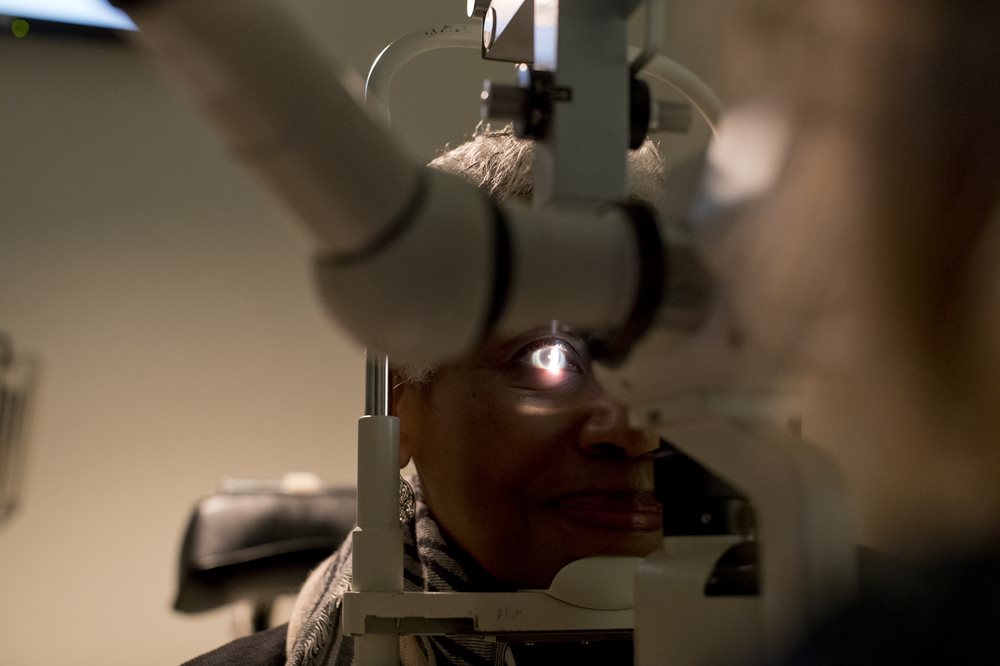Age-Related Macular Degeneration Risk Factors
Age-related macular degeneration (AMD) is an eye disease that can blur the sharp, central vision you need for activities like reading and driving. AMD is a common condition, and a leading cause of vision loss for people age 50 and older. AMD doesn’t cause complete blindness, but losing your central vision can make it harder to see faces, drive, or do close-up work like cooking or fixing things around the house.
AMD happens very slowly in some people. Even if you have early AMD, you may not experience vision loss for a long time. For other people, it progresses faster and can lead to central vision loss in one eye or both eyes.
As AMD progresses, many people see a blurry area near the center of their vision. Over time, this blurry area may become bigger or you may see blank spots. Things may also seem less bright than before. Some people may also notice that straight lines start to look wavy. This can be a warning sign for late AMD. If you notice this symptom, see your eye doctor right away.

Your risk for AMD increases as you get older. People over age 60 are more likely to have AMD. Other risk factors include:
- Family history of AMD
- Race - Caucasians have a higher rate of AMD
- Sex - females have a higher rate of AMD
- Light colored eyes
- Smoking
- Heart disease
- High blood pressure (hypertension)
- High cholesterol
- Obesity
- Diet deficient in fruits and vegetables
- High sun exposure
If you are at risk for AMD because of your age, family history, or other factors, it’s important to have regular eye exams. Early AMD doesn’t have any symptoms, so don’t wait for your vision to change.
Eye doctors can check for AMD as part of a comprehensive dilated eye exam. The exam is simple and painless. Your doctor will give you some eye drops to dilate your pupil and then check your eyes for AMD and other eye problems.
 There is currently no treatment available for AMD. However, it is usually slowly progressive and most patients with this condition are able to live relatively normal, productive lives. And, often one eye is affected more than the other.
There is currently no treatment available for AMD. However, it is usually slowly progressive and most patients with this condition are able to live relatively normal, productive lives. And, often one eye is affected more than the other.
According to the National Eye Institute’s Age-Related Eye Disease Study, individuals with intermediate or late AMD may benefit from taking a vitamin supplement containing ingredients such as vitamin C, E, zinc, copper, and beta-carotene. These supplements do not help cure the disease, but are thought to slow AMD’s progression.
Lifestyle changes can slow the progression of age-related macular degeneration. These include changing the diet to include more fruits and vegetable, choosing healthy unsaturated fats, such as olive oil, over unhealthy saturated fats, such as butter, eating whole grains rather than refined grains and adding fish high in omega-3 fatty acids.
If you have any of the above risk factors and have not had an annual eye exam in the last year, call The Eye Institute at 215.276.6111 to make an appointment today at one of The Eye Institute’s practice locations.